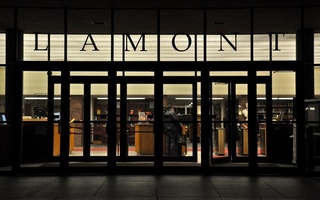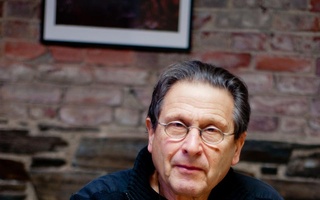Anne Carson is one of the most renowned Canadian poets alive today, having received, among other awards, the T.S. Eliot Prize for Poetry, a MacArthur Fellowship, and a Guggenheim Fellowship. Known for the genre-breaking original works “Short Talks,” “Autobiography of Red,” and “Red doc>,” much of her oeuvre is also the translation and reinterpretation of ancient Greek works. One such reinterpretation, “Antigonick,” is a book of dialogue printed in the poet’s original handwriting and illustrated by hand by Bianca Stone. The work is being performed this weekend by the Harvard-Radcliffe Dramatic Club at the Loeb Ex Theatre, under the direction of visiting director Ianthe Demos. Carson, who is travelling and could only be reached by email, discussed her work with The Crimson. Answers are printed as given.
The Harvard Crimson: Your work as a translator has focused mainly on the archaic and classical Greek canon (Sappho, the tragedians), rather than on the Hellenistic and later neoteric works. Why do you choose to translate the things you do?
Anne Carson: i like concision and drive in a writer
the Hellenistic authors give me a sense of amplitude and drift
THC: What's it like to be a woman working in the field of Classics?
AC: when i do Classics i belong to a third gender, the clear one
THC: “Antigonick,” as printed, is very clearly meant to be a physical object of beauty in addition to a work of literature. When you were working on it, did you intend it for performance, which divorces it from the physical object?
AC: i didn't think about staging it, but i did think about the sound of the language and making the lines sayable
there is a small theatre inside the mind that i aim at (i think) when i write lines of verse drama
beyond that i have no theatrical imagination
Read more in Arts
Massey Lecture Profiles Bob Dylan's Murder Ballad


















